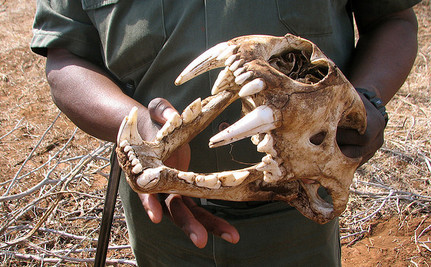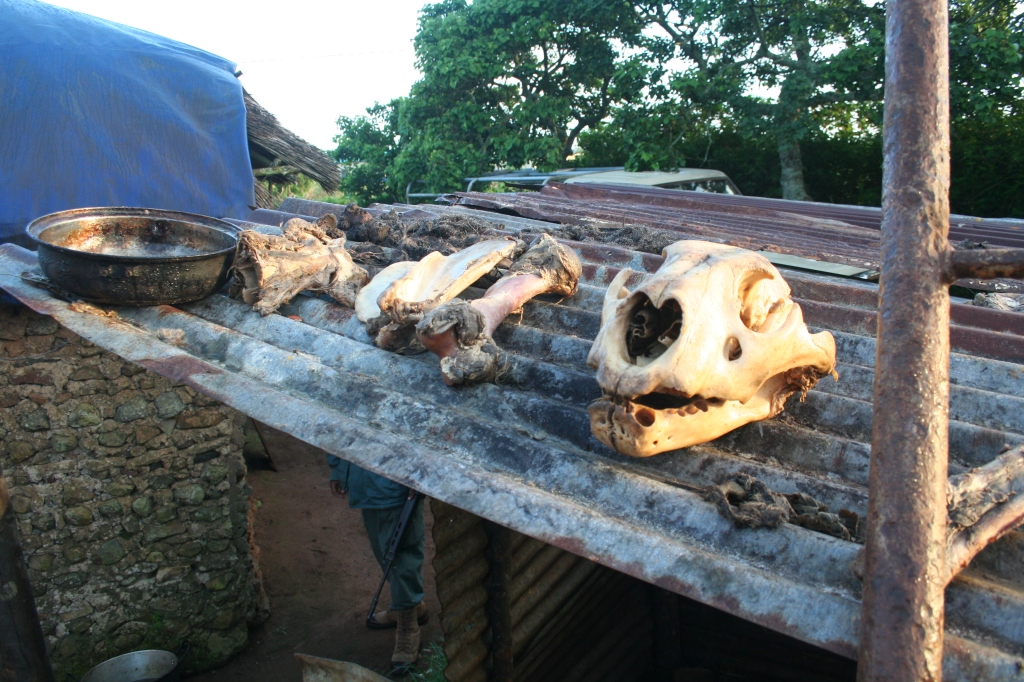Objections to the setting of a lion bone export quota
Dear Honourable Minister Creecy, Honourable Deputy Minister Sotyu and Ms Phoshoko,
Thank you for the opportunity to provide information to be considered for the determination of the 2019 lion bone export quota. This is a matter of great public concern involving our national heritage, and the protection of same for future generations, in accordance with the guaranteed Constitutional right to environment. The importance of this cannot be underestimated.
The initial establishment of a legal export quota of lion bones in 2017 was based purely on purported market dynamics in the preceding years of unregulated and uncontrolled lion bone exports, i.e. an annual average export quantity of 800 lion skeletons. However, applying some form of data to an issue does not equate to science and hence this quota had no grounding in science or research.
At the time, lion bones were predominantly a by-product of the trophy hunting industry, a situation which has changed dramatically since the USA’s 2016 restrictions on trophy imports. This was a significant turning point for the industry that reacted by starting to breed lions purely for the bone export market. This had further grievous animal welfare implications, as a lion bred for its bones does not require to be in good physical health.

We believe that the setting of a lion bone quota should not be considered in a silo of CITES permits, nor is it the mandate of just the Department of Environment, Forestry and Fisheries (DEFF). The establishment of such a quota has much wider implications for, inter alia, wild lion and other wildlife conservation, animal welfare, ethics, Brand SA, and potentially human health, that concern all members of the public, as well as other government departments.
Not only is the export quota decided in isolation, it is now also presented as a science-based consideration with a so-called public participation process based on scientific expert opinion and scientific peer-reviewed publications only, thus excluding the views and values of South Africa’s wider citizenry, and preventing critical ethical considerations from being taken into account. In addition, such scientific expert opinions are often sponsored or financially reliant on the very same industries, who benefit from such research.
Even though the notice calling for comments is issued under Sections 61 and 62 of the National Environmental Management: Biodiversity Act (NEMBA) and DEFF are obliged to ask the public for written scientific information before publishing a non-detriment finding (NDF) assessment, which includes the setting of a lion bone quota. It is our view that a decision to publish a NDF is an ‘administrative action’ for the purposes of the Promotion of Administrative Justice Act (PAJA).

Section 24 of the South African Constitution guarantees every person the right to environment. The highest court in the country has confirmed that this right is linked to animal welfare. Accordingly, same must be considered in any decision relating to this right and the interpretation of this section by the relevant department.
Therefore, comments relating to the welfare of lions bred for or used in the lion bone trade, and any related industry, must be considered.
Although this call for public participation relates specifically to the 2019 lion bone export quota, we are of the view that DEFF needs to consider the captive lion breeding industry in its totality, when determining this decision.

The lion bone quota will inevitably impact on current and future lions in captivity, as well as wild animal populations, in South Africa, regionally and globally. Thus, a summary of some of the issues pertaining to the captive lion breeding industry has been set out below.
According to the Scientific Authority, a zero quota would be dangerous as this industry is led by the Asian demand for lion bones. However, pre-2008 there was no demand for lion bones. This has been created by the South African lion bone industry, which actively markets lion bones in Asia.
However, a zero quota on leopard off-take did not create a spike in poaching of wild leopard, as is suggested would happen with a reduction of the lion bone quota. Research is also indicating that Asian consumers are open to sustainable non-animal alternatives.
Until such time as DEFF has established an independent high-level expert panel and the NSPCA’s court application to interdict the Minister’s authorisation for the export of lion bones has been finalised, the quota should be reduced to zero in order to avoid any further potential harmful effects.
Please note that the below submission is non-exhaustive and further information can be provided and/or substantiated as required. We reserve the right to amend or expand on statements contained herein, should further evidence come to light. This submission should be considered in totality and in the spirit in which it was drafted.
This submission was prepared by the Coalition to Stop the Captive Breeding and Keeping of Lions and Other Big Cats for Commercial Purposes and was co-signed by the following 30 organisations:
Animal Law Reform South Africa
Animaltalk Africa
Beauty without Cruelty
Blood Lions
Born Free
Coalition of African Animal Welfare Organisations
Campaign to Ban Trophy Hunting
Cape Leopard Trust
Captured in Africa Foundation
Claws Out
For the Love of Wildlife
Four Paws
Future4Wildlife
Global March for Elephants & Rhinos
Global White Lion Protection Trust
Green Girls in Africa
Ross Harvey
Humane Society International Africa
OIPA International
OSCAP
Panthera Africa
Don Pinnock
Pit-Track
Rhinos in Africa
Southern African Faith Communities’ Environment Institute
Voice4Lions
Wild Law Institute
Wildlife ACT
WildTrust
World Animal Protection



We cannot continue to exploit our wildlife in the manner in which we are currently allowing for fear of causing an unnatural imbalance to our wildlife economic systems in general. Aside from this, the extreme abuse, neglect and cruelty that the farming of our wild cats has resulted in, is simply unacceptable. I am a South African, and my heart is bonded with our beautiful wildlife in all its splendour. We cannot, as a nation, allow such cruelty and exploitation of those who have no voice. If we do continue to allow the lion bone trade, what exactly does that say about the South African people at large. We will be considered a thoroughly cruel, third world country which will only result in the suffering of our own people long term.
Thank you Bernadette for voicing your concerns so eloquently. I full heartedly agree with you.
Thank you for taking action…am supporting the cause and will do all to raise awareness .
Thank you Dorothy that is much appreciated by all organisations involved 😊
Thank you for taking action … am supporting the cause. We cannot, as a nation allow such cruelty and abuse of those who have no voice, and who share the world with us.
Thank you Elize, the gross animal cruelty and neglect is one of the biggest concerns and we have no way to fight this other than through the NSPCA. A total lack of national norms & standards.
The absolute torture of these animals is inhuman it must stop!!
Great and stupidity are the worst ingredients in many countries. Here we see one of the top points. I am afraid that too much money is involved. Animals are human because it is ingrained. In-humanity behavior in our so-called human societies is the normality. Animals make no war, “humans” do. Look around you. Only one example is Syria.
This is heartbreaking. The greed and ego of the most evil and selfish and destructive living thing on the planet, man of course. Why are they being allowed to just exploit majestic and beautiful lions and in this heartbreakingly cruel and inhumane way, not even trying to act like they care. Seeing emaciated, intelligent animals like that makes me sick.
Why cant the assholes work like the rest of us do, instead of exploiting and abusing and slaughtering lions.
A good man regards the life of his beast. That is a Proverb from the Bible. God will have vengeance on these evil people. It’s coming and on its way back to you.
The SA government is only in it for the money and greed will be the downfall of these people. We surely need to step up and do as much as we can to stop this. We need to petition this and gather people to deliver this to every person involved in this decision. No wonder people are leaving SA. They will reap what they sew!
Pingback: Trophy Hunting and Cecil’s Anniversary | IWB
Pingback: Trophy Hunting and Cecil’s Anniversary – International Wildlife Bond
Pingback: Emaciated cubs, freezer full of carcasses uncovered at North West lion farm · South Africa Tribune
Pingback: Conservation: More horror scenes at SA lion farm – newsly.xyz
Pingback: Conservation: More horror scenes at SA lion farm
Pingback: Conservation: More horror scenes at SA lion farm • News Alert
Pingback: More horror scenes at Pienika lion farm in Lichtenburg | Green Girls in Africa
Pingback: High Court Rules in Favour of Lions and NSPCA | IWB
Pingback: High Court Rules in Favour of Lions and NSPCA – International Wildlife Bond
Pingback: Objections to the setting of a lion bone export quota – Blood Lions
This is unbelievable. The fact that the king of the jungle is being treated this way is a national disgrace. We are exploiting and shaming one of big five in such a vile manner. Authorities need to step and do the right thing. It pains me to read about Pienika Farm and the lion bone trade with china, its sickening!!!